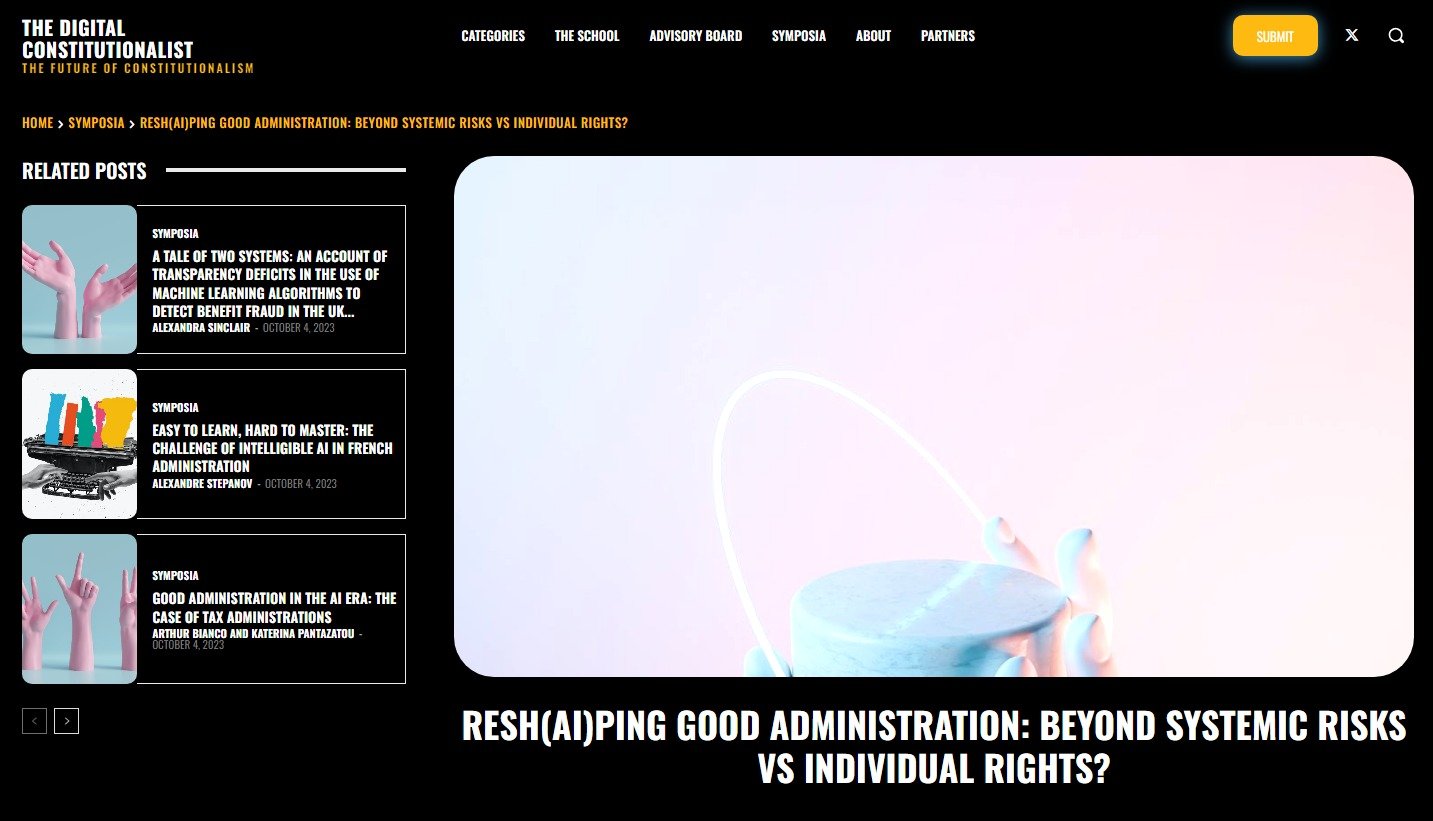Colleagues at The Digital Constitutionalist have put together a really thought-provoking symposium on ‘Safeguarding the Right to Good Administration in the Age of AI’. I had the pleasure of contributing my own views on the need to extend and broaden good administration guarantees in the context of AI-assisted decision-making. I thoroughly recommend reading all contributions to the symposium, as this is an area of likely development in the EU Administrative Law space.
Is the flexibilisation of formal requirements in public procurement going both ways? (T-394/12)
In its Judgment in Alfastar Benelux v Council, T-394/12, EU:T:2014:992, the General Court (GC) resolved a dispute concerning public procurement activity of the European Institutions (in this case, the Council). One of the main claims of the disappointed bidder was that the Council had failed to discharge its obligation to state reasons because one of the sentences of the extracted evaluation report that was made available to it by the Council was incomplete.
 In the applicant's view, the incompleteness of the extract prevented it from assessing the reasons that justified the Council's decision to award the contract to another tenderer. The applicant submitted that the fact that the Council had complemented the extract at a later stage did not overcome the initial ommission and that the Council should be made liable for damages. The GC rejected the claim. The reasoning of the GC in dismissing the action triggers some comments.
In the applicant's view, the incompleteness of the extract prevented it from assessing the reasons that justified the Council's decision to award the contract to another tenderer. The applicant submitted that the fact that the Council had complemented the extract at a later stage did not overcome the initial ommission and that the Council should be made liable for damages. The GC rejected the claim. The reasoning of the GC in dismissing the action triggers some comments.
Firstly, it is worth emphasising that the GC has continued pushing for a strengthening of the duty to provide reasons in abstracto (and, indirectly, as a result of the bindingness of the right to good administration as recognised in Art 41(2)(c) of the EU Charter of Fundamental Rights). Indeed, the GC emphasised that, as a general point of law,
since infringement of the obligation to give reasons is a matter of public interest, the European Union judicature must raise it of its own motion and, therefore, the fact that the applicant raised it belatedly does not render such a plea inadmissible (see, to that effect, BP Products North America v Council, T-385/11, EU:T:2014:7, paragraph 164) (T-394/12 at para 25, emphasis added).
This creates a strong incentive for contracting authorities to 'err on the side of excessive disclosure' when it comes to the reasons for the adoption of a procurement decision, which may be detrimental for competition and for the protection of the legitimate commercial interests of other tenderers (as clearly recognised in art 55(3) Dir 2014/24 and art 113(2)II Financial Reg, but not always properly understood or applied). This also follows on the GC's previous tough approach and continues to create excessive incentives towards transparency in public procurement (as criticised here, here and in A Sánchez Graells, 'The Difficult Balance between Transparency and Competition in Public Procurement: Some Recent Trends in the Case Law of the European Courts and a Look at the New Directives', University of Leicester School of Law Research Paper No. 13-11). Hence, the general approach continues to create the wrong incentives and should be reassessed.
Secondly, however, when it comes to the specifics of the case, the GC adopts a very sensible and reasonable approach to the assessment of the claim of breach of the duty to state reasons in particular. Indeed, the GC dismisses the claim on the basis that the incomplete sentence only omitted a limited amount of information concerning the general comments of the evaluators and, additionally, the tenderer had been provided with more details in the remainder of the extract from the evaluation report. Interestingly, the GC stressed that
The general comments may easily be inferred from the detailed technical evaluations of the successful tenderer’s bid which are not concerned by the formatting error, since the general comments constitute a succinct summary of material contained in the contested decision (T-394/12 at para 30, emphasis added).
As such, this reasoning should not be surprising and the GC could hardly be expected to have decided otherwise. Having adopted a more formalistic approach would not only have annulled a procurement decision for no good reason, but would also have opened the floodgates to an unforeseeable volume of litigation (particularly if one takes into account that the guarantees provided by Art 41 EUCFR are applicable in all procurement covered by Dir 2014/24). Hence, it is a sensible decision.
However, the better question seems to be whether this same 'anti-formalistic' approach will hold when the clerical mistakes and partial ommissions affect the documentation submitted by the tenderers. Functionally, the rules applicable to the interpretation of documents and the avoidance of formal requirements where the parties engaged in the procurement process 'can make sense' of the documentation exchanged should go both ways. However, this is not necessarily the case yet, as recently discussed regarding Cartiera dell’Adda and Cartiera di Cologno, C-42/13, EU:C:2014:2345 (see here).
Hence, it will be interesting to see if the incipient push towards a more functional approach to public procurement takes root and ends up creating a system that is less 'based on rights' and more oriented towards good procurement outcomes [a problem that also affects 'the other side of the Atlantic', as discussed in S Schooner & P Kovacs, "Affirmatively Inefficient
Jurisprudence?: Confusing Contractors’ Rights to Raise Affirmative Defenses with
Sovereign Immunity" (2012) 21 Federal Circuit Bar Journal 686].

